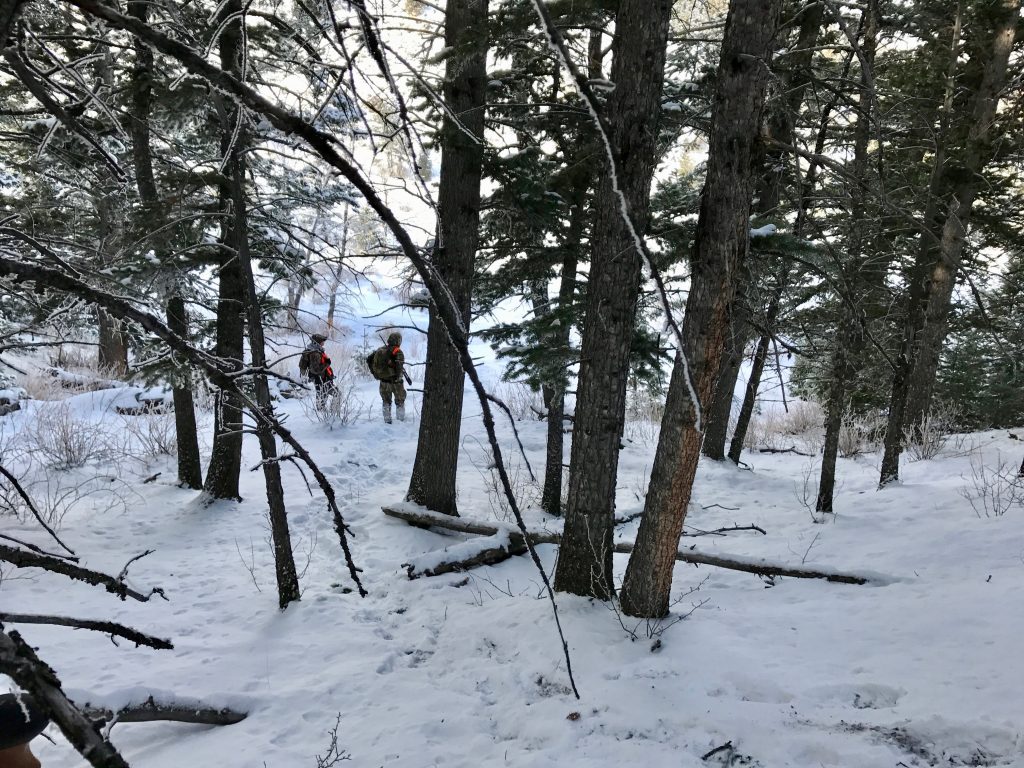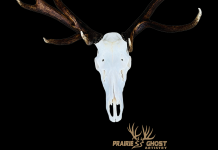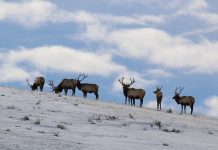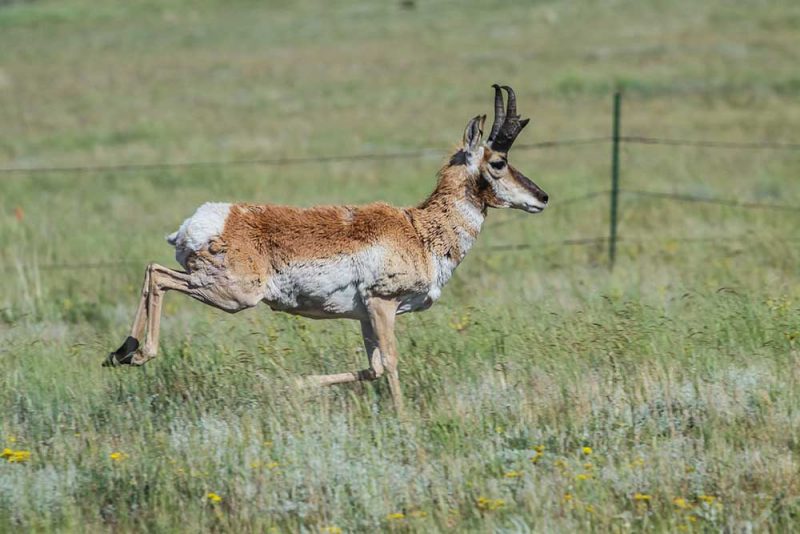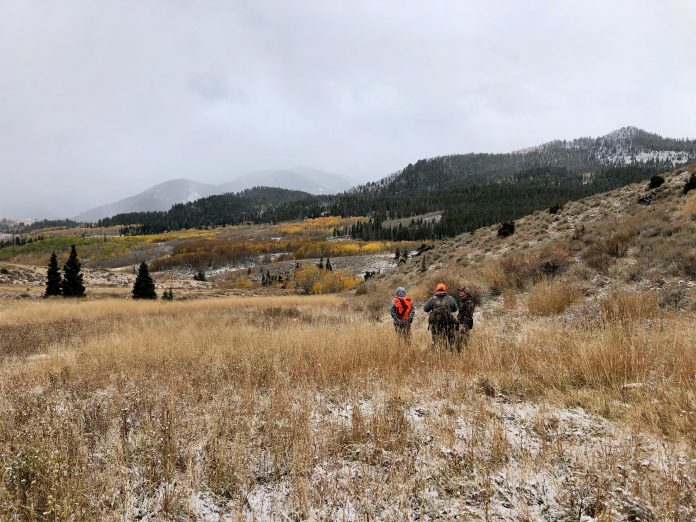
Survival and first aid are no different. Research it, study it, prepare yourself. One day that advanced preparation and legwork could save your own life or the life of a loved one.
For the better part of a Peyton Manning NFL career, I was honored to teach Hunter’s Education for the state of Wyoming. I use Peyton, simply because he was a rookie during my first class and retired shortly after my last.
Hunter’s education was a way to imprint important parts of the lifestyle on young hunters. Of course, I spent a good deal on ethics and laws as well as firearms safety and everyone’s favorite – wildlife identification. But it was Wednesday night’s class when the mood was more serious and occasionally somber. That was the night we taught our survival course.
I remember my opening for the class. “Of all classes you attend this week, this is the class with the highest probability of teaching you something that will save your life or the life of a friend or loved one someday. In this sport, folks, it’s not if – but when.”
As I looked around the room, I immediately knew I had their attention. It was important that I did. The information I would tell them on this night was less about answers on a test administered Friday where success or failure was a card – and more about the solutions to real and dangerous situations in the field where success or failure could mean life or death.
And no one is immune to the dangers of the high country. Experience, years as a hunter, knowledge of the high country, abilities and skill sets do not give someone a pass. I would tell the stories of long time, knowledgeable and well-respected hunters who had been rescued by search and rescue or flown out of the backcountry in a helicopter, and those whose lives were lost partaking in the sport.
“This is the most important three hours of instruction you will have with us this week.”
If we all sit back and think, hard, about our times in the field – if it hasn’t already happened we can visualize situations and events where we could have “gotten in trouble.” So much so that our pride won’t even allow us to claim skill as the over-riding factor, but instead – simple dumb luck.
In all honesty, it’s easy to understand how troubles can manifest in the field. Think about it, we are headed to the field with the end result possibly being the buck or bull of a lifetime, a trophy to show pals, and of course a lifetime of stories and memories. The primary focus in preparing to take to the field is everything that is needed to accomplish this mission.
However, survival should be of equal importance during preparation. What’s that old saying – “An ounce of prevention is worth a pound of cure.” Planning ahead will help you avoid accidents or put you in a place that you are better prepared if something does go wrong.
There were survival rules that I would discuss with the class. Always telling somewhere where you are going, and when you plan to return. Of course, we aren’t always sure of when the hunt will end. Animals harvested at sunset could mean a late night or even early morning. When going to the field, I like to give my wife time to be concerned. If you haven’t heard from me by a designated time, something is wrong.
Hunting alone is an instant recipe for disaster – depending of course on what you may be hunting. If, for example, you’re hunting whitetail does along a river bottom or in fields, there’s more flexibility. However, packing in, long hikes into the mountains and of course anytime you hunt in grizzly country – it’s generally better to have the buddy system or strength in numbers strategy.
Make sure that your pack is equipped with sources of nutrition and hydration in the event you are not able to get out of where you are headed. Fuel yourself before heading to the field, as much as we love coffee on those early morning snowy hunts – coffee doesn’t count. Dehydration is not just something a person needs to look out for in warm weather – you can burn equal amounts of energy and fuel storages in temperatures well below zero. Stay hydrated – once dehydration kicks in, it may be too late to catch your body up with what you’ve packed.
Proper clothing is a must, and a layering system is an excellent strategy in the high country. When pursuing animals, your body will go through rapid moments of heating up and cooling off. This is a strategy that should be employed in all environments and all situations. A spring shed hunting trip can start off warm, but temperatures change, and you don’t always know when that may happen. Hypothermia is not something you only worry about during frigid days. A warm spring outing where you may fall into a river or high mountain creek can create a dangerous situation. Make sure your pack has extra clothing.
Know how to build a fire, and carry with you the tools you need to make that happen. Waterproof matches and a form of fire starter should be an essential part of your pack.
Your pack is a personal preference. There are a number of things you traditionally bring along. Extra knives, saws, waterproof bags, batteries, extra bullets, etc. A survival kit of some sort should be a permanent fixture in anyone’s pack who’s in for a long haul.
This too is personal preference. A first aid and survival book, medical supplies such as aspirin and bandages, a compass and map (and the knowledge to use them), a length of rope, your waterproof matches and fire starter, something you can use as shelter, a wet weather poncho, something to treat and clean wounds are a few things you may have on your list. It’s better to have it packed and never need it, then need it and not have it.
Of all the things you carry into the field with you, the most important tool you have is your head. Don’t lose it, under any circumstance. Remaining calm and not panicking in any and all situations could be the difference.
One joke I would issue to the class, “In all my years, I’ve never been lost – may have temporarily forgotten where I was, but never lost!” Of course, it would get a chuckle, but the talk would then turn serious. In the event you find yourself lost – stop, collect your thoughts and remain calm! That initial shock and fear of isolation and unfamiliarity can easily cause panic. Do your best to fight it.
The best thing to do when lost is to stop where you are, build a fire and/or camp and collect your thoughts. Stay warm and re-evaluate your situation. If you told someone where you’d be, help will soon be on the way. Moving without knowledge of the terrain can put you well outside the area you told someone you were hunting. Panic, adrenaline, and fear can burn essential fuels making the situation exponentially more dangerous.
When you’ve built your fire and set up camp and have calmed yourself, go over the events of the day in your mind. Where might you have gotten off track? If you have any hesitation, staying put is the best course of action. Signal your distress. Three of anything is a signal of an emergency. Three rapid rifle blasts, three tweets on a whistle, anything that could signal to someone within earshot that you are in danger.
Understand the situation, as Admiral James Stockdale discussed in his “Stockdale Paradox” – confront the brutal facts of your reality. Know that you may be spending the night in the high country. If you’ve packed the essentials, it will be uncomfortable – and it will take some time – but you will survive.
In the local press, one occasionally reads of someone in the high country who lost their lives to “exposure”. The more technical term for exposure is, of course, hypothermia. It’s been dubbed the silent killer, as it will slowly take control of you – and your realization of the danger will only show its face when there’s nothing you can do to help yourself.
Hypothermia is the rapid cooling of the core body temperature. Essentially your body begins to cool faster than it can reheat itself. Everyone that has been in the high country has displayed the initial signs of the onset of hypothermia, shivering. When the shivering becomes uncontrollable, you are in danger. You need to stop, build a fire, change into warmer or dry clothing and warm your body. The stage following uncontrolled shivering is no shivering at all – this is when the situation is especially dangerous as you may be past the point of helping yourself.
If you are hunting with a buddy, and their behavior becomes erratic and they almost act intoxicated with slurred speech and stammering words – stop what you are doing and treat them immediately for hypothermia.
There were a number of other things we would discuss when covering survival and first aid. How to treat open wounds, how to stop bleeding and how to splint fractures. We would talk about the rule of threes; three minutes without oxygen, three hours without shelter, three days without water and three weeks without food. We’d briefly discuss CPR and the appropriate treatments for shock.
The last few minutes of class were the following words – I include them here for similar impact. The things we’ve discussed are not enough to help you survive any and all situations in the high country. If you hunt, if you accompany other hunters it behooves you to learn far more. This is simply a tip of the iceberg approach. Knowing and understanding CPR and appropriate steps for varying injuries is something you should pack with you in the high country. Classes are offered regularly in most hometowns, of course, there are too many web resources to mention. It is your responsibility as an outdoorsman to know the dangers of the lifestyle and to prepare yourself physically, mentally and intellectually for any and all situations.
I think about the countless hunts I have been privileged to participate in. The thrill of the chase, the culmination of the harvest, the stories, the chuckles, the countless yarns that grow with each telling. To me, nothing is more exciting, challenging and rewarding than the hunt – nothing.
But the hunt comes with its levels of dangers, and at all times it is imperative to be cognizant of them. A memorable day in the field with friends and loved ones can quickly take a dangerous turn. Understand that fact, prepare yourself for dangerous situations and always keep your head and wits about yourself.
Hunting is a lifestyle for most – it is their identity. With so much invested, it seems minor to go the extra mile in preparing yourself for the unthinkable. In your professional life, you’re always training on the job and improving. In hunting, you’re always taking the time to read hunting journals and book by knowledgeable pursuers of the different critters we hunt.


